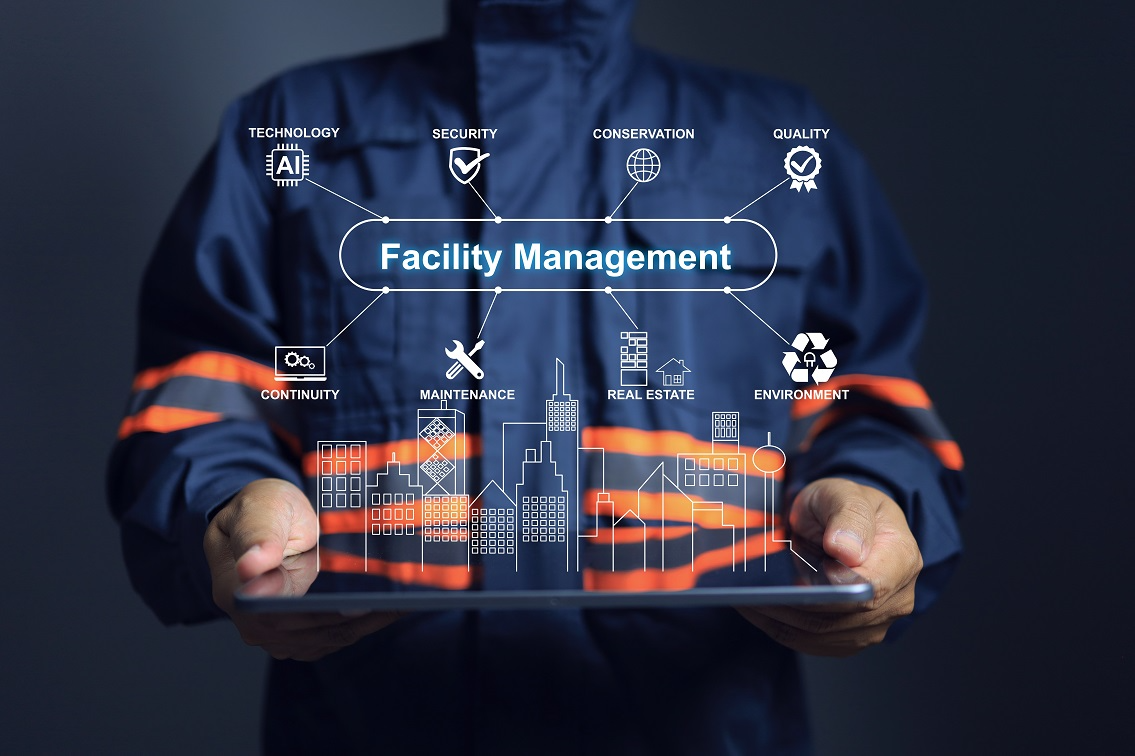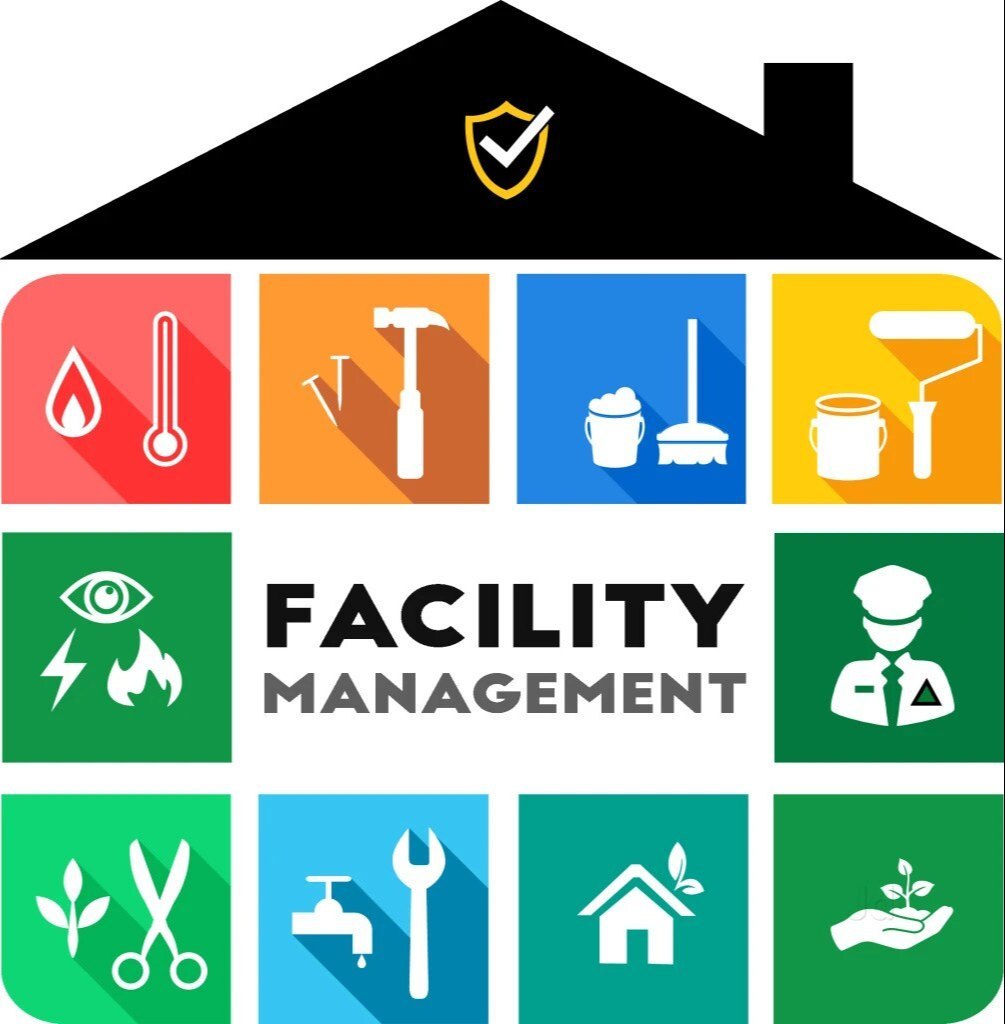Best Practices in Facility Management for Modern Companies
Best Practices in Facility Management for Modern Companies
Blog Article
Secret Fads Forming the Future of Facility Administration in 2024
As we look in advance to 2024, the landscape of center administration is poised for substantial makeover, driven by numerous essential patterns. The assimilation of smart structure technologies and a change towards data-driven decision-making pledge to boost functional efficiency while prioritizing sustainability in practice.
Smart Structure Technologies

Smart building technologies encompass a vast range of systems, consisting of smart illumination, a/c controls, and safety systems. By integrating these systems, center managers can monitor and change parameters in real-time, leading to significant reductions in power waste and operational costs. Wise sensing units can spot tenancy degrees and readjust lighting and temperature level accordingly, ensuring that power is only used when necessary.
Furthermore, these technologies help with enhanced data collection, permitting organizations to track usage patterns and recognize chances for additional renovations. The execution of wise building technologies not just adds to sustainability goals yet additionally develops much healthier work settings that can improve staff member productivity and satisfaction.
As we move right into 2024, the fostering of wise building modern technologies will likely speed up, mirroring a more comprehensive shift in the direction of even more intelligent, receptive, and sustainable center management practices.
Data-Driven Choice Making
Progressively, companies are leveraging data-driven decision making to enhance center administration methods. By using information analytics, center managers can derive actionable insights that considerably boost operational performance and source allotment. The integration of innovative modern technologies, such as IoT sensors and real-time monitoring systems, allows the collection of vast amounts of information on structure efficiency, occupancy rates, and power consumption.
This wide range of information permits facility managers to recognize fads, anticipate maintenance demands, and proactively address problems before they rise. Predictive analytics can anticipate equipment failings, minimizing downtime and repair work costs. Furthermore, information visualization devices help with better interaction among stakeholders, ensuring that educated choices are made collaboratively.
Additionally, data-driven strategies enhance critical planning by allowing center managers to evaluate the efficiency of present techniques and make notified choices relating to investments in modern technology or infrastructure. As companies progressively prioritize functional quality, data-driven choice making is positioned to become a foundation of effective center administration approaches in 2024 and past. Inevitably, the capacity to take advantage of information properly will equip companies to produce more effective, productive, and durable facilities.
Sustainability and Eco-friendly Practices
The emphasis on data-driven decision making naturally aligns with the growing concentrate on sustainability and green practices within facility management. As companies significantly prioritize ecological duty, facility managers are leveraging analytics to maximize resource use, decrease waste, and lessen carbon impacts. This calculated strategy allows the combination of energy-efficient systems, such as LED lights, clever cooling and heating controls, and eco-friendly power resources right into Click This Link facility procedures.
Additionally, the implementation of sustainable practices prolongs past energy consumption. Center supervisors are embracing environmentally friendly products and promoting recycling campaigns to create a circular economic situation within their centers. This not just enhances the environmental account of the organization yet likewise fosters a society of sustainability amongst employees.
Conformity with ecological guidelines is another critical aspect driving the fostering of green techniques. By utilizing data analytics, center managers can keep an eye on conformity metrics and determine areas for enhancement, making certain adherence to regional and international sustainability requirements.
Hybrid Job Models
A considerable change in the direction of hybrid work models is reshaping the landscape of facility management in 2024. This standard incorporates in-office and remote work, requiring a reevaluation of room use, resource visit the site allotment, and worker interaction methods. Organizations are significantly acknowledging the significance of flexible work spaces that deal with varied requirements and preferences.
Facility managers need to adjust by applying functional workplace layouts that support joint efforts while giving locations for concentrated job. This consists of the combination of modern technology to assist in smooth communication and cooperation amongst in-office and remote workers. Smart structure remedies, geared up with sensors and analytics, enable real-time tracking of room use, allowing organizations to maximize their settings successfully.
Additionally, hybrid job versions highlight the demand for efficient center management that focuses on worker experience. This includes not just modern technology and area style yet likewise the advancement of plans that promote a balanced work-life dynamic. As business navigate this transition, the role of facility administration becomes crucial in producing a nimble work environment that promotes productivity and drives business success. Basically, the hybrid work version is changing facility management, encouraging an aggressive approach to meet the progressing demands of the workforce.
Enhanced Occupant Wellness
As companies embrace hybrid job versions, an increased concentrate on owner wellness is ending up being integral to facility monitoring approaches. Facility Management. This shift identifies that a healthy and satisfied workforce directly affects efficiency and retention prices. Center supervisors are now focusing on environments that promote mental and physical health, incorporating components such as all-natural illumination, biophilic layout, and accessible wellness sources

Modern technology plays a critical function in this development. Smart building systems can keep track of ecological variables and readjust setups in real-time, making sure optimal comfort levels - Facility Management. Responses mechanisms, such as tenancy sensing units and employee surveys, allow center managers to consistently refine wellness initiatives based on resident demands.

Final Thought
In 2024, the future of facility administration will certainly be substantially affected by the assimilation of clever structure modern technologies and data-driven decision-making, cultivating enhanced operational efficiency. Sustainability initiatives will certainly focus on environmentally friendly techniques, while the introduction of hybrid job models will certainly require flexible office layouts. Additionally, an increased emphasis on resident wellness through sophisticated cooling and heating systems and biophilic layout will certainly add to much healthier work environments. These trends jointly underscore the developing landscape of center monitoring in feedback to modern challenges and chances.
Facility managers are taking on green products and advertising reusing efforts to produce a circular economic situation within their centers.A considerable shift in the direction of hybrid work versions is reshaping the landscape of facility monitoring in 2024.Additionally, hybrid job designs emphasize the demand for efficient facility monitoring that prioritizes staff member experience.As organizations embrace hybrid job models, an enhanced focus on owner wellness is becoming important to facility monitoring techniques.In 2024, the future of center administration will certainly be considerably affected by the combination of clever building modern technologies and data-driven decision-making, promoting boosted operational performance.
Report this page